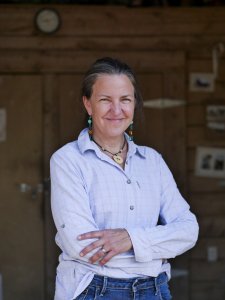Members, please login to view protected content.
Professor of Ecology and Evolutionary Biology and Environmental Studies, University of Colorado-Boulder
Evolutionary mechanisms lead to changes in the phenotypic and genomic features of populations; population genetics and patterns of phenotype differentiation are often used to infer which of these mechanisms are at work. Here, I highlight the need to more directly study the underlying processes and mechanistic basis of population-level patterns. Barn swallows (Hirundo rustica) are widespread throughout their northern hemisphere-wide breeding distribution with fascinating levels of morphological and behavioral divergence among six closely related populations. My lab studies the role of evolutionary mechanisms in shaping phenotype and genomic variation among populations in this young species complex. Experiments and selection studies within populations predict population-level differences in signaling traits and migratory behavior. Analyses within hybrid zones also reveal that differences in both signal and migratory traits are predictive of gene flow and the evolution of reproductive isolation among sub-species in secondary contact.
Dr. Rebecca (Becca) Safran is a Professor of Ecology and Evolutionary Biology and Environmental Studies at the University of Colorado-Boulder. She is co-director of Inside the Greenhouse for creative climate communication, where her focus includes an exploration of humans and birds living side by side in the natural world: https://www.sidebyside.world/ and teaching a science communication class where students translate climate change science into creative films. As an evolutionary biologist, Becca’s interests are focused on the formation of new species with a special focus on one of the most widespread birds on planet earth: the barn swallow. Her research group works on a variety of projects related to the physiological, behavioral and ecological and climate factors that influence genomic divergence among closely related populations of barn swallows around the world from villages above the Tibetan Plateau in China to barns and bridges near the University of Colorado in Boulder. Funded by the National Science Foundation through several grants including CAREER award, Becca’s research has appeared in Science, Current Biology, Trends in Ecology and Evolution, and many other publications related to evolutionary ecology and genetics. Becca is passionate about social justice and belonging in STEM, a topic her research group has worked on collaboratively. You can read more about Becca and the Safran Lab here: http://www.safran-lab.com/. Becca lives in Boulder Colorado with her husband, Sam, their two boys, and two dogs.

